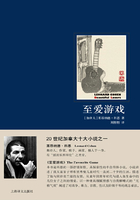These rumours produced great excitement. The years 1854 and 1855are notorious for a series of local rebellions. These insurrections took place partly on the shores of the Volga, which had already felt, in the time of Catherine the Second, the horrors of a jacquerie, partly in some Central and South-western Governments, such as Vladimir, Riasan, Tambov, Pensa, Voronej, and Kiev. These revolutionary movements, directed exclusively against the feudal aristocracy, produced a great impression on the Czar Alexander. Addressing the chiefs of the Moscovite nobility (the so-called marshals), the Czar showed his appreciation of the wants of the time by the following words:
"Gentlemen, you surely understand yourselves the impossibility of retaining, without alteration and change, the existing mode of owning souls [a usual expression, the meaning of which is the right to the unpaid work of the serfs]. It is better to abolish personal servitude by legislative measures than to see it abolished by a movement from below. I ask you to consider such measures as might forward this end." These promising words, although followed by a direct declaration that serfdom was not to be abolished at once, strengthened the expectations of those who thought that the new reign would inaugurate an era of wide social and political reform. Although the Governor-General of Moscow, Zakrevsky, did his best to persuade the nobility that all projects concerning the abolition of serfdom were laid aside, it very soon appeared that such was by no means the intention of the Czar; for during the coronation the Home Secretary, Lanskoy, by the direct command of Alexander, entered into communication with those noblemen who were present in Moscow, in order to ascertain what were their opinions as to the best means of bringing about an amelioration in the actual condition of the serfs. These negotiations left no doubt as to the animosity with which the nobility of Great Russia considered every plan tending to the emancipation of the peasant. This induced the Minister to turn his eyes to those provinces in which the idea of liberating the serfs had taken root at the time when personal servitude had been abolished by Napoleon I in the neighbouring districts of Poland, particularly the Governments of Vilna, Kovno, and Grodno.
The Lithuanian nobles were already favourable to the idea, and were easily induced by the Governor General Nasimov to present to the Czar an address asking for the abolition of bondage, but at the same time demanding exclusive possession of the land for the nobility. You therefore see that the conditions on which the Lithuanian nobles wanted to see the enfranchisement carried out were the same as those on which it had been already carried out in Poland and the Baltic provinces. Seeing the difficulty of preserving for their own profit the unpaid services of the peasant, they were anxious to secure to themselves the monopoly of the soil. The serf was to be allowed to become a free person only on condition of remaining a proletarian, living exclusively on the wages he earned. Carried out on such conditions, the emancipation would hardly have met with the approval of those who were most directly concerned. As far back as the reign of the Empress Catherine the peasant had plainly declared that he wanted not only liberty, but land. He was mindful of his ancient state, previous to that of bondage, which, as we have already shown, was the state of an owner in common of the ground he made fruitful by his work. No power on earth would have been strong enough to break the ties, centuries old, which united him to the soil. It was no doubt in the interests of the nobility to see these ties broken, for who could be the gainers in a scheme which promised enhancement of the mercantile value of the soil and cheap labour, if not those who had secured to themselves the monopoly of the property in land? What, on the other hand, was the liberated proletarian to become if not a labourer, given up to eternal toil on the estates of a land-monopolising nobility, and bound to receive from their hands those bare wages which would cover the expense of his existence? The Emperor and some persons in his confidence, were conscious of the social evils which the execution of such a plan would produce. It will be to the eternal glory of Alexander to have answered the request of the Lithuanian nobility by a decree by which, whilst allowing the establishment of local committees for the elaboration of measures which might achieve the emancipation in view, he plainly declared that the liberated serfs ought to be secured at least in the possession of their homesteads and of the land belonging to these homesteads (the so-called homestead-land -- ousadebnaiia zemlia). This expression was obscure and ambiguous, for it was not easy to establish the limits of the so-called homestead-land. Was it to be considered as a compound of all the various communal privileges of which the peasant was possessed, or to mean only the ground directly surrounding his habitation? This question remained unsettled.















